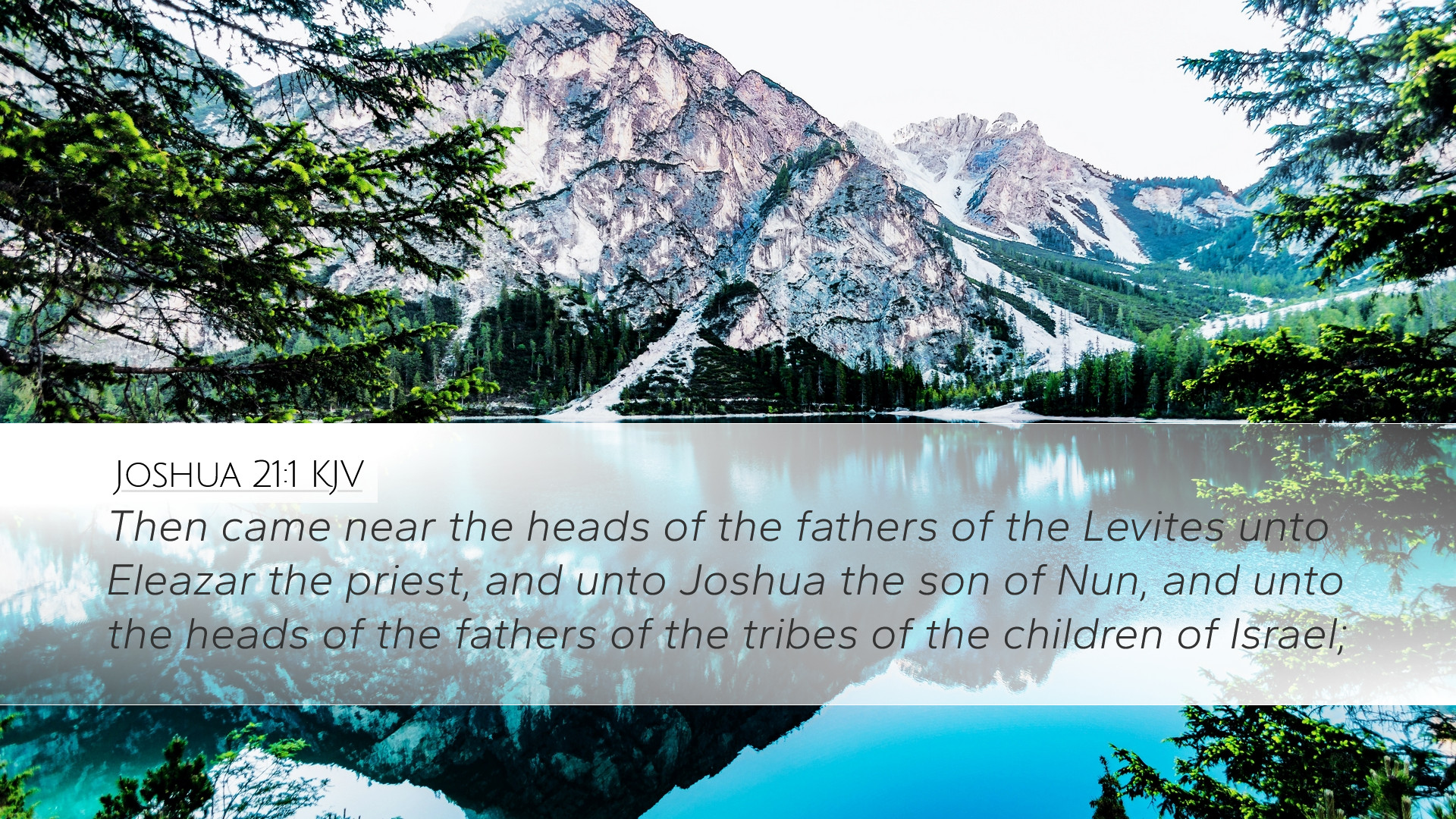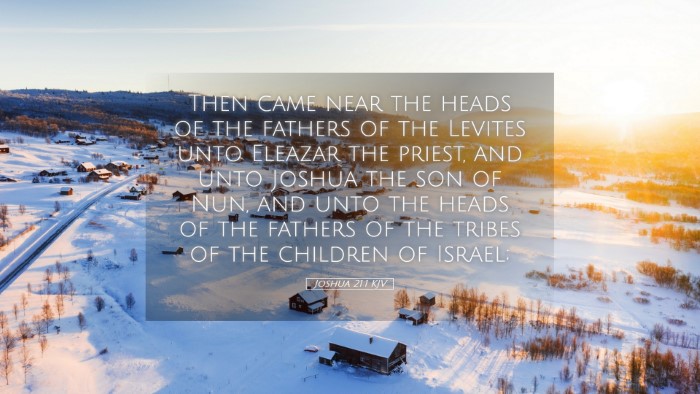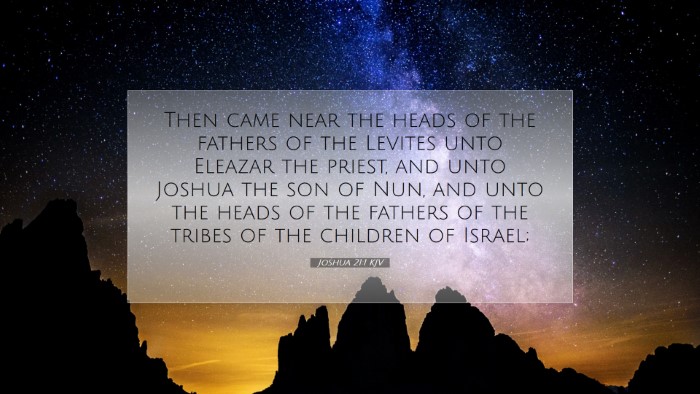Commentary on Joshua 21:1
Verse: "Then came near the heads of the fathers of the Levites unto Eleazar the priest, and unto Joshua the son of Nun, and unto the heads of the fathers of the tribes of the children of Israel."
Contextual Background
The Book of Joshua centers on the Israelites' entrance into the Promised Land, detailing the distribution of land among the tribes and cities of refuge. Joshua 21 marks a pivotal moment in this narrative, specifically focusing on the allocation of cities to the Levites, the priestly tribe.
This chapter serves to fulfill earlier commands God gave concerning the role and sustenance of the Levites within Israelite society, emphasizing their unique position and responsibilities.
Insights from Public Domain Commentaries
Matthew Henry's Commentary
Role of the Levites: Henry emphasizes the importance of the Levites, who, unlike other tribes, did not receive a territorial inheritance. Their portion was instead comprised of cities dispersed throughout the land, ensuring the priestly function was accessible to all tribes.
Unity and Cohesion: The gathering of the heads of the fathers signifies an important organizational step in Israel’s governance, showcasing the united front among the leaders of Israel as they worked towards fulfilling God’s commandments.
Divine Provision: Henry points out that God’s provision for the Levites, by granting them cities, reflects His understanding of their need. The Levites were to be sustained by the offerings and tithes of the community, underlining the principle of reliance on God’s grace through the community.
Albert Barnes' Notes on the Bible
Historical Context: Barnes notes that the Levites came near to Eleazar the priest and Joshua in a formal approach, which was customary for expressing a request or need. This public demonstration illustrates the respect and authority they acknowledged in their governance.
Delegation of Authority: The presence of both Eleazar and Joshua indicates a collaborative leadership, symbolizing the fusion of priestly and civil authority, a theme consistent throughout the Pentateuch.
Significance of City Allocation: Barnes elaborates on how the selection of cities for the Levites reinforces the structure intended by God, ensuring the priests would not be encumbered by land acquisition but rather equipped to lead the community spiritually.
Adam Clarke's Commentary
Levitical Cities: Clarke highlights that the Levites’ request for cities is rooted in their unique spiritual responsibilities. He discusses the theological implications of their role as mediators between God and the people, whereby the distributed cities serve as centers of worship and teaching.
Symbol of Faithfulness: Clarke suggests the gathering of Levite leaders at this junction reflects their faithfulness in fulfilling God's commands amidst the broader individual pursuits of the tribes. Their unity in seeking a resolution underscores the importance of adhering to God’s laws.
Theological Reflections
- The Nature of Leadership: This verse illustrates the collaborative nature of leadership in the Israelite community, reminding us that effective leadership is always aimed at service to God's people.
- God's Plan for Provision: The allocation of cities indicates God's meticulous care in providing for the spiritual needs of His people, a principle that reverberates through the church's structure today.
- Dependence on Divine Guidance: The Levites' approach to Eleazar and Joshua can serve as a model for believers today, demonstrating a posture of dependence on God and His appointed leaders.
Applications for Today
- Church leaders can take cues from this passage, recognizing the need for community, collaboration, and respect for God-given authority in ministry.
- This verse challenges congregations to support their leaders, particularly those who serve in roles necessitating spiritual oversight and personal sacrifice.
- The narrative beckons a reflection on how the church can continue to structure itself in a manner that reflects God’s intentions for communal worship and leadership.
Conclusion
Joshua 21:1 serves as an important reminder of the Levites' special calling, the significance of community in worship, and highlights the collaborative structure within Israelite leadership. The insights gleaned from public domain commentaries provide a comprehensive understanding, vital for pastors, students, theologians, and scholars alike, as they seek to unpack the implications of this vital verse in the broader narrative of Scripture.


